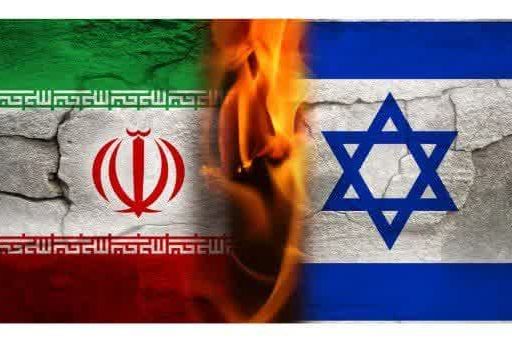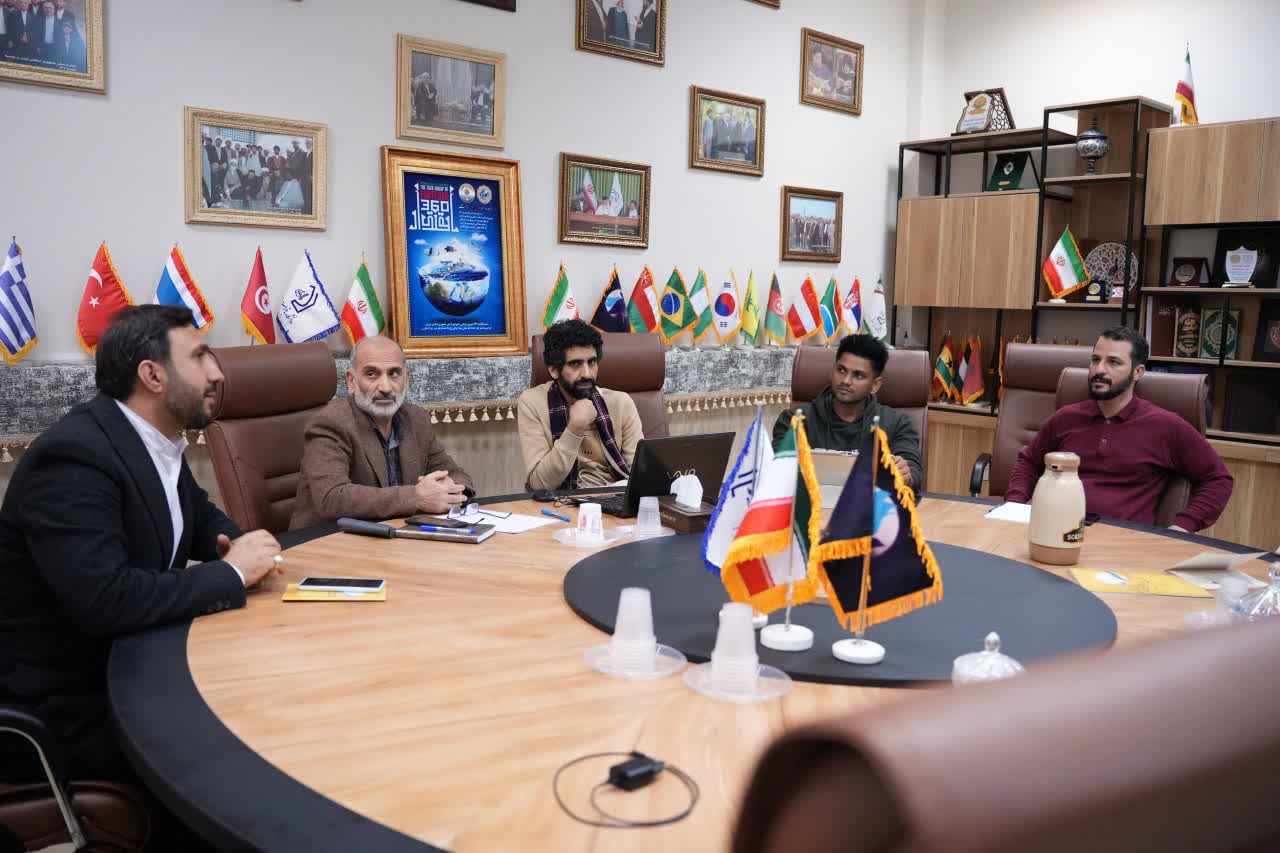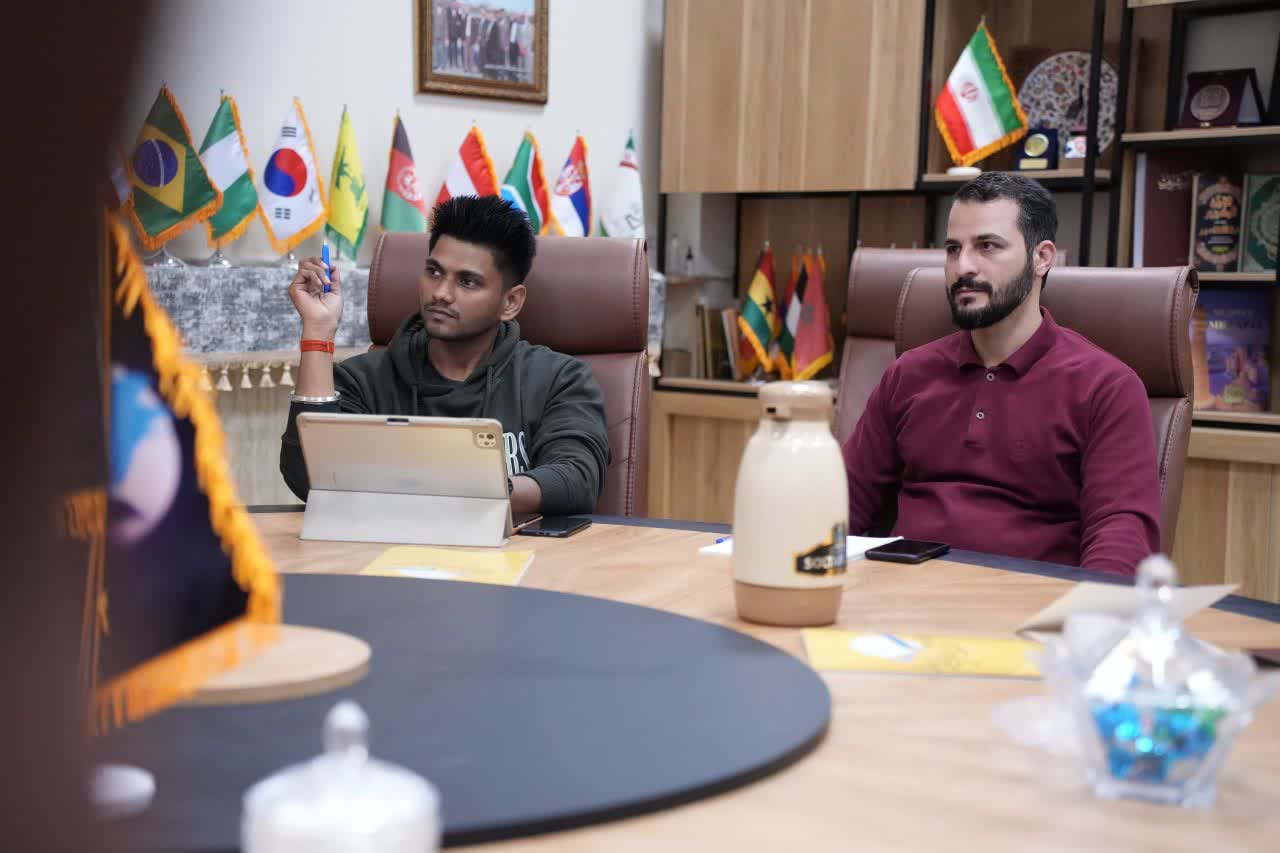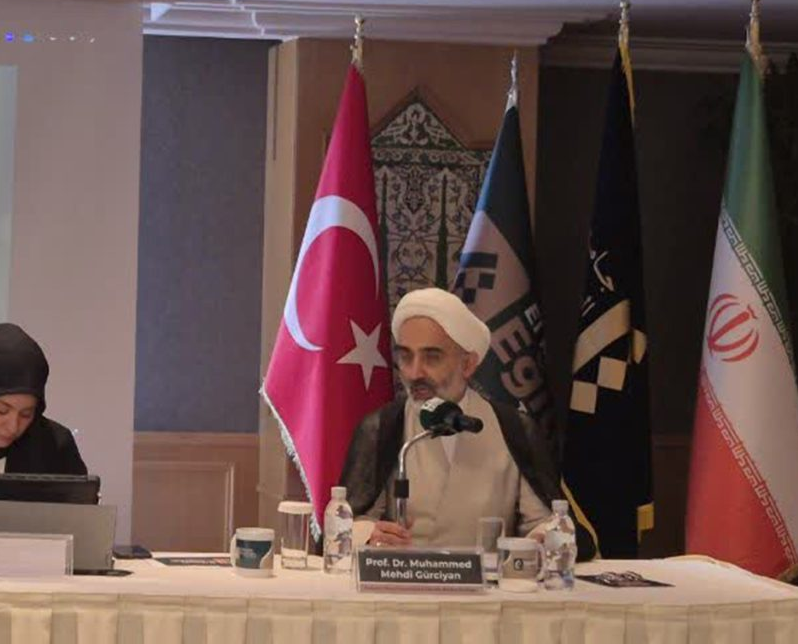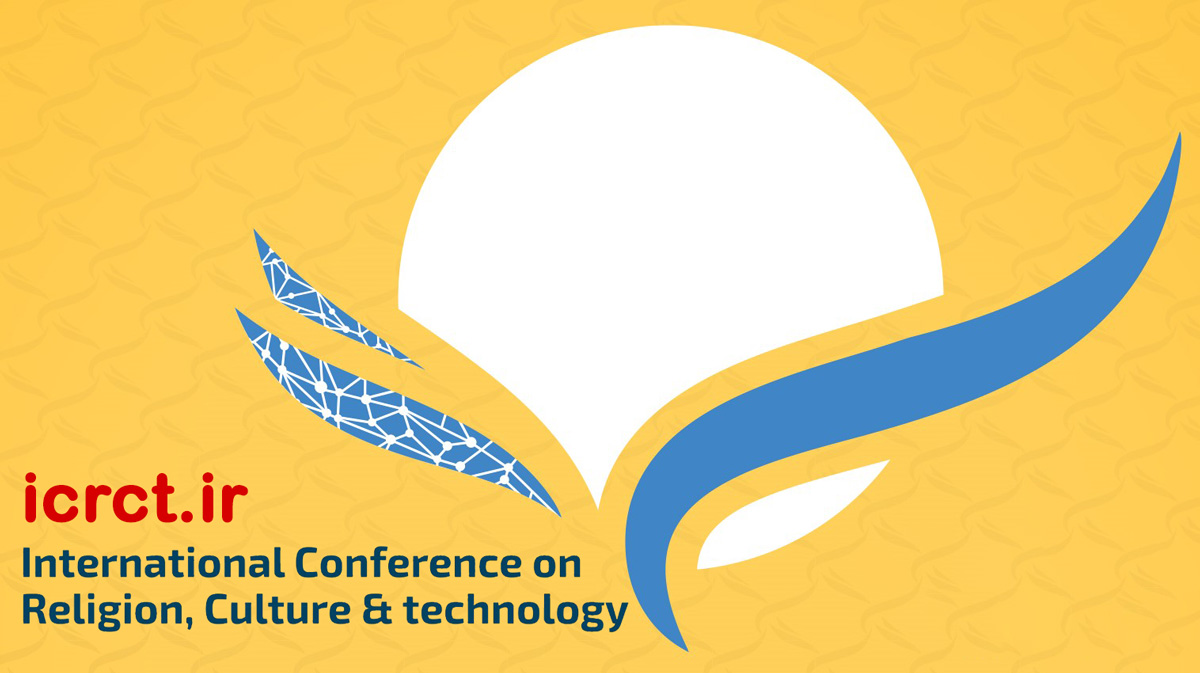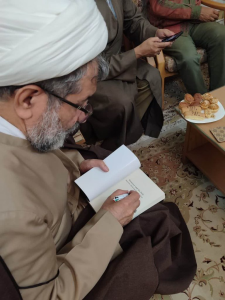Publication of a paper by a professor from Baqir al-Olum University in the widely circulated South African newspaper, Diplomatic Inside.
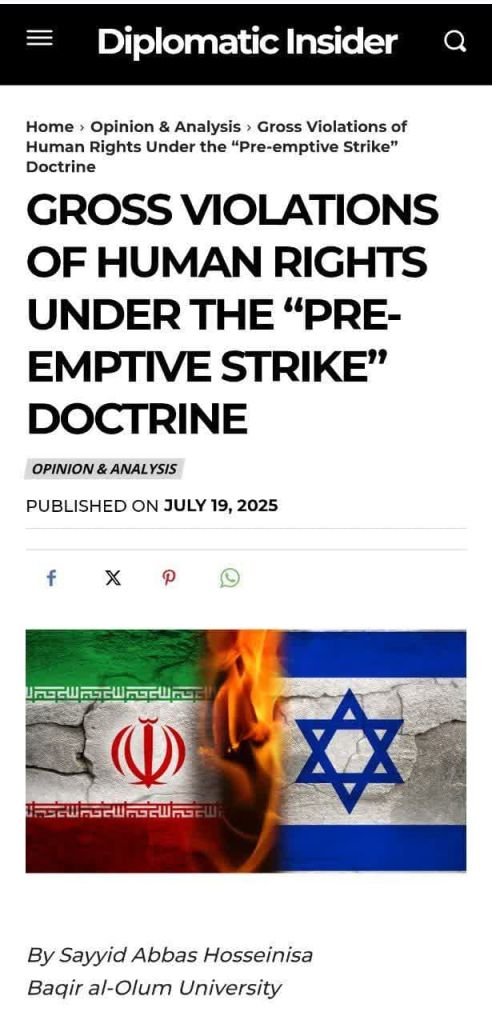
The article by Dr. Seyed Abbas Hosseini-Sa, a professor at Baqir al-Ulum University, entitled “GROSS VIOLATIONS OF HUMAN RIGHTS UNDER THE ‘PRE-EMPTIVE STRIKE’ DOCTRINE”, was published in the widely circulated South African newspaper Diplomatic Inside.
Gross Violations of Human Rights Under the “Preemptive Strike” Doctrine
Sayyid Abbas Hosseinisa
Member of the Law Department, Baqir al-Olum University
Abstract
This article examines the coordinated military attacks by Israel and the United States on Iran on June 13, 2025, conducted under the pretext of the preemptive strike doctrine. The core argument is that this doctrine, in the absence of credible evidence of an imminent threat, has become a tool for violating human rights and international law. The attacks targeted Iran’s nuclear facilities, military bases, and residential areas, resulting in civilian deaths, destruction of critical infrastructure, and breaches of legal principles such as Article 2(4) of the UN Charter and the Geneva Conventions. The primary challenge highlighted is the lack of legal and ethical legitimacy of these attacks due to the absence of evidence of an immediate threat and the extensive harm to civilians. These actions not only violated Iran’s sovereignty but also caused profound human and social consequences, undermining trust in international institutions like the UN and IAEA and fueling regional instability. The article concludes that the preemptive strike doctrine must be reevaluated, and international accountability mechanisms, such as the International Criminal Court, strengthened to prevent its misuse as a justification for aggression and human rights violations. It argues that a commitment to justice and human dignity is essential for ensuring global peace and security.
Introduction
On the morning of June 12, 2025, the world witnessed one of the most extensive military operations in recent decades – a coordinated attack by Israel and the United States targeting Iran’s nuclear facilities, military bases, and even residential areas. This operation, justified as a “preemptive strike” to neutralize a potential security threat, not only devastated Iran’s critical infrastructure but also annihilated hundreds of civilian lives in mere seconds. Official statistics from Iran’s Forensic Medicine Organization report 935 fatalities, including 38 children, 102 women (some pregnant), and dozens of scientists and ordinary citizens.
Here a fundamental question arises: Can such attacks -even when framed as threat prevention- be justified within the framework of international law and the ethics of warfare? This article, after critically examining the preemptive strike doctrine, not only analyzes the legal dimensions of these attacks but also raises profound ethical questions: Can the international community remain silent in the face of such egregious human rights violations? Should security doctrines take precedence over international laws -the product of decades of efforts to curb warmongering? The answers to these questions will not only shape the future of international relations but determine whether humanity can break free from the cycle of retaliatory violence.
The Preemptive Strike Doctrine: Legal Foundations and Challenges
The preemptive strike doctrine is rooted in the concept of self-defense, as recognized under Article 51 of the United Nations Charter, which permits states to respond to an “armed attack” provided the response is proportionate and necessary. However, the interpretation of this doctrine, particularly regarding preemptive strikes undertaken before an actual attack occurs, has long been contentious.
From a legal perspective, the legitimacy of a preemptive strike hinges on the existence of an “imminent, immediate, and unavoidable” threat, as established in the historic Caroline Case (1837). This case set a precedent that preemptive action is only justified when the threat is so imminent that no non-military alternatives remain. In the case of the recent attacks on Iran, neither the United States nor Israel provided credible public evidence of such an imminent threat from Iran. This absence of evidence renders the attacks an act of aggression under international law, violating the principle of prohibiting the use of force in international relations, as outlined in UN General Assembly Resolution 3314 (1974).
Iran’s UN Ambassador, Amir Saeid Iravani, described the attacks as a “declaration of war” and a breach of Article 2(4) of the UN Charter, which emphasizes respect for the sovereignty and territorial integrity of states. This stance aligns with legal arguments presented in the International Court of Justice (ICJ) in cases such as Nicaragua v. United States (1986), where the Court ruled that any military action without legal justification constitutes a violation of national sovereignty.
From a Ethical standpoint, the preemptive strike doctrine poses profound challenges to principles of ethics and global justice. Legal philosophers like Immanuel Kant emphasize the importance of respecting autonomy and human dignity. Preemptive strikes lacking solid evidence undermine these principles, fostering cycles of violence and mistrust rather than enhancing security. Similarly, John Rawls, in his theory of justice, underscores the need for fair rules in international relations, arguing that military actions must be grounded in global consensus and shared ethical principles. The lack of transparency and accountability in the recent attacks renders them ethically indefensible.
Human Rights Violations in the Recent Attacks
The coordinated attacks by Israel and the United States on Iran not only targeted military and nuclear facilities but also caused extensive damage to residential areas. For instance, the strike on a home in Astaneh-ye Ashrafiyeh, Gilan, which killed 16 people and injured 26, represents a clear violation of the principle of distinction in international humanitarian law. This principle, enshrined in Protocol I of the Geneva Conventions (1977), obligates states to differentiate between military and civilian targets. Reports indicate that 90 percent of the victims were civilians, including women, children, and scientists involved in Iran’s peaceful nuclear program.
Targeting nuclear facilities under the safeguards of the International Atomic Energy Agency (IAEA), such as those in Fordo and Natanz, constitutes a breach of international obligations under the Treaty on the Non-Proliferation of Nuclear Weapons (NPT). The IAEA’s 2024 report confirmed Iran’s compliance with its safeguards obligations. Nevertheless, the attacks, carried out with U.S. GBU-57 A/B bunker-buster bombs, not only damaged nuclear infrastructure but also inflicted significant harm on surrounding civilian areas. These actions violate the principle of proportionality in humanitarian law, which stipulates that civilian harm must not exceed the anticipated military advantage.
From a philosophical perspective, the killing of civilians and scientists violates the principle of human dignity, emphasized in the Universal Declaration of Human Rights (1948) and modern ethical frameworks like Kant’s deontological ethics. Targeting scientists not only infringes on the right to life but also undermines academic freedom and the right to scientific progress, as recognized in Article 15 of the International Covenant on Economic, Social and Cultural Rights (ICESCR).
Human and Ethical Consequences
The coordinated military attacks by Israel and the United States on Iran had profound human, social, and ethical consequences far beyond material damage. These strikes, targeting nuclear facilities, military bases, and residential areas, not only devastated Iran’s critical infrastructure but also severely disrupted the daily lives of ordinary citizens, resulting in clear violations of fundamental human rights.
The destruction of vital infrastructure, such as water and electricity facilities near the nuclear sites of Fordo, Natanz, and Isfahan, disrupted access to essential services like drinking water, power, and sanitation. For example, World Health Organization (WHO) reports from June 2025 highlighted that prolonged power outages in rural areas around Natanz severely impaired hospital operations, leading to the deaths of several patients reliant on medical equipment, such as ventilators. This constitutes a direct violation of the right to essential services, recognized as part of the right to life and health in UN General Assembly Resolution 64/292 (2010).
Moreover, the attacks on residential areas created widespread fear and insecurity among civilians. Amnesty International’s 2025 reports documented a surge in mental health issues, including anxiety and depression, among residents of affected areas. These strikes not only claimed lives but also eroded the social fabric of local communities and triggered forced internal displacement. For instance, the destruction of homes near Isfahan’s nuclear facilities displaced thousands, with the UN High Commissioner for Refugees (UNHCR) reporting that over 5,000 people were relocated to temporary camps in the months following the attacks.
These actions, by targeting civilians and civilian infrastructure, violated the principle of distinction under Protocol I of the Geneva Conventions (1977) and caused excessive collateral damage, breaching the principle of proportionality, which prohibits civilian harm disproportionate to military gains. Ethically, these attacks conflict with principles of global justice and human dignity. Amartya Sen and Martha Nussbaum’s capabilities approach argues that every individual should have the opportunity to flourish and realize their human potential, including rights to life, health, education, and security. The destruction of critical infrastructure and the killing of civilians, including scientists, researchers, and academics, stripped these capabilities from the Iranian people.
Ethically, these attacks contradict Immanuel Kant’s deontological principle, which insists that humans be treated as ends, not means. Targeting nuclear scientists and civilians, under the pretext of mitigating alleged threats, reduced human lives to tools for political and military objectives, disregarding their inherent dignity and undermining universal ethical values. Furthermore, the attacks significantly eroded trust in international institutions like the UN and IAEA. UN reports from 2025 indicate growing cynicism among Iranians regarding these institutions’ ability to ensure justice and peace. This distrust fueled regional instability, as local and regional groups, in the absence of international accountability, resorted to retaliatory actions. For example, a UN Security Council report noted an increase in militant group activities in the region post-attacks, escalating tensions across the Middle East.
International Reactions; Condemnations and Silences
The coordinated military strikes by Israel and the United States on Iran on June 13, 2025, elicited widespread reactions from the international community, primarily emphasizing the illegality of these actions and their flagrant violations of human rights. However, the silence or lack of explicit condemnation from certain countries, institutions, and political parties regarding these attacks, which constitute gross breaches of human rights and international law, raises critical questions about the global community’s commitment to justice and accountability. This section examines the global condemnations while analyzing the reasons and implications of the reticence of some international actors.
Widespread Condemnations
The Gulf Cooperation Council (GCC) countries, including Saudi Arabia and Qatar, condemned the attacks as a clear violation of Iran’s sovereignty and a breach of Article 2(4) of the UN Charter, which prohibits the use of force against a state’s territorial integrity. Saudi Arabia’s Ministry of Foreign Affairs stated that the actions “endanger regional stability” and called for international investigations. Qatar, whose Al Udeid military base was targeted in Iran’s response, labeled the strikes a “threat to regional peace” and stressed the need to respect state sovereignty.
Beyond the Gulf region, Pakistan, Jordan, and Armenia issued strong responses. Pakistan’s Foreign Minister described the attacks as “destabilizing” and a “violation of fundamental principles of international law,” urging UN Security Council intervention. Jordan called the actions a “danger to global peace,” emphasizing adherence to the UN Charter. Armenia, referencing the history of regional tensions, deemed the strikes “unjustifiable” and called on the international community to prevent further escalation.
Russia, as one of Iran’s closest allies, has taken a firm and unequivocal stance in condemning these attacks. In a statement issued on June 24, 2025, the Russian Foreign Ministry described the strikes as “a blatant aggression against the territory of a sovereign state” and “a gross violation of the UN Charter and principles of international law.” Moscow further characterized these actions as part of “Israel and the United States’ persistent pattern of aggression in the region,” warning that the attacks could lead to “an escalation of regional conflicts and widespread instability.” Russian Foreign Minister Sergey Lavrov, referencing Israel’s previous attacks on Syria, Lebanon, and Gaza in recent years, condemned the strikes as “an attempt to weaken nations opposing Western hegemony.” In his remarks, Lavrov called for international sanctions against those responsible for the attacks, emphasizing that such military actions undermine global security and violate fundamental norms of international relations.
The Non-Aligned Movement (NAM), led by India and South Africa, also condemned the attacks in a joint statement at the UN General Assembly. India, a key NAM member, stressed that targeting nuclear facilities under IAEA safeguards not only violates international law but also undermines confidence in the Treaty on the Non-Proliferation of Nuclear Weapons (NPT). These reactions reflect widespread concern about the attacks’ implications for global order.
International organizations also responded. Francesca Albanese, the UN Special Rapporteur on human rights in the occupied territories, condemned the attacks for killing civilians and destroying civilian infrastructure, such as residential areas near nuclear facilities, labeling them a clear violation of the Geneva Conventions and a “potential war crime.” The International Criminal Court (ICC) announced it is investigating the strikes as possible war crimes, particularly for breaching the principles of distinction and proportionality in international humanitarian law. ICC Prosecutor Karim Khan stated on X that “targeting civilians and civilian infrastructure, such as Evin Prison, demands urgent investigation.” Amnesty International and Human Rights Watch issued reports highlighting violations of human rights, including the right to life and access to essential services. For instance, Amnesty’s June 2025 report cited the destruction of water and electricity facilities near Natanz as a violation of UN General Assembly Resolution 64/292 (2010), which recognizes the right to water.
Lack of Explicit Condemnation
Despite widespread condemnations, certain countries, institutions, and political parties refrained from explicitly denouncing the attacks or adopted ambiguous positions, prompting criticism about double standards and political considerations in addressing human rights violations.
Some Western nations, notably the United Kingdom and France, permanent members of the UN Security Council, refrained from issuing clear condemnations. Hossein Mousavian, a former Iranian diplomat, noted in a Bloomberg interview that neither the Security Council nor the IAEA Board of Governors issued even a basic statement condemning the attacks, let alone supported Iran. Users on X highlighted this silence as a sign of deeper distrust in the West, particularly given the lack of UN or intelligence agency confirmation of an imminent threat from Iran. This reticence likely stems from strategic alliances with the United States and Israel, contrasting with these countries’ swift responses to human rights violations in other contexts, such as in Africa.
The UN Security Council and the IAEA Board of Governors also failed to issue explicit condemnations. Alireza Jahangiri, Iran’s Deputy Foreign Minister, attributed this inaction to the influence of certain permanent Security Council members who “established the UN Charter but in practice shield aggressors.” This silence has eroded trust in international institutions, with X users pointing to it as evidence of their ineffectiveness against Western powers.
Certain political parties in Western countries, particularly conservative factions in Europe and the United States, either avoided condemning the attacks or justified them as “defensive measures.” These positions, often citing the preemptive strike doctrine without credible evidence of an Iranian threat, faced criticism in international media. For example, some U.S. Congress members refrained from condemnation, a stance attributed to domestic political pressures and pro-Israel lobbying.
Conclusion
The recent attacks by Israel and the United States on Iran, conducted under the guise of the preemptive strike doctrine, lack legal legitimacy and constitute acts of aggression and potential war crimes due to the killing of civilians, destruction of civilian infrastructure, and violations of fundamental human rights principles. From a legal perspective, these actions contravene Article 2(4) of the UN Charter, the Geneva Conventions, and the Treaty on the Non-Proliferation of Nuclear Weapons (NPT). Ethically, they undermine the principles of human dignity, global justice, and autonomy, perpetuating a cycle of violence and instability.
To prevent the recurrence of such actions, the international community must urgently strengthen oversight and accountability mechanisms. This includes empowering the International Criminal Court (ICC) to conduct thorough and impartial investigations into potential war crimes, such as those evident in the targeting of civilian areas like Astaneh-ye Ashrafiyeh. The UN Security Council, despite its frequent paralysis due to veto powers, must reform its processes to ensure swift and unbiased responses to violations of international law. Additionally, regional organizations and coalitions, such as the Non-Aligned Movement (NAM), should play a more proactive role in advocating for adherence to the UN Charter and fostering dialogue to de-escalate conflicts. The preemptive strike doctrine, when applied without robust evidence of an imminent threat and strict adherence to international legal principles, risks becoming a pretext for aggression and human rights abuses, as demonstrated by the absence of credible justification for the 2025 attacks on Iran.
This article argues that a fundamental reevaluation of the preemptive strike doctrine is essential to prevent its misuse. Such a review should establish stricter criteria for what constitutes an “imminent threat,” requiring transparent, verifiable evidence subject to international scrutiny. Moreover, reinforcing a global commitment to justice and human dignity—rooted in ethical frameworks like those of Kant and Rawls—offers the only viable path to ensuring lasting peace and security. By prioritizing accountability, transparency, and respect for sovereignty, the international community can break the cycle of violence and build a more equitable global order.
















